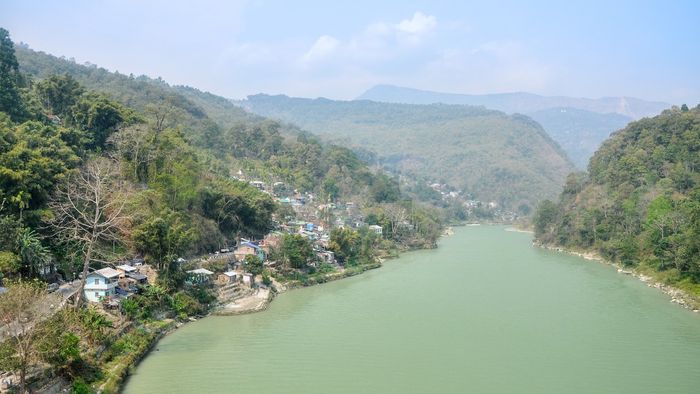Bangladesh seeks to resume Teesta water sharing treaty talks with India
Bangladesh's interim government, represented by adviser Syeda Rizwana Hasan, is keen to restart discussions with India on the Teesta water sharing treaty. Hasan highlighted the significance of adhering to international principles for water distribution and expressed optimism about resolving the treaty issues.

- Sep 02, 2024,
- Updated Sep 02, 2024, 11:51 AM IST
Bangladesh’s interim government is likely to resume discussions on the Teesta water sharing treaty with India, according to Syeda Rizwana Hasan, the adviser on water resources. Hasan emphasised that both upper-riparian and lower-riparian countries should follow international principles for water distribution.
Speaking to PTI in Dhaka, Hasan expressed confidence that through dialogue, the Teesta treaty and other water-sharing agreements with India would be resolved. However, he suggested that Bangladesh might consider international legal documents and principles if an agreement cannot be reached.
In an interview, she told PTI, “I have discussed the issue of Teesta water sharing with all relevant stakeholders (in Bangladesh). We have discussed that we need to restart the process and dialogue regarding the Teesta treaty. We also have to work on the Ganges treaty, which is coming to an end in two years."
“Both sides agreed, and a draft of the Teesta water-sharing agreement was prepared, but the agreement was not signed due to the opposition of the West Bengal Chief Minister. The fact remains that we have not been able to finalise the agreement. So, we will start from that point with the draft of the agreement and urge India to come forward and restart the dialogue process,” she said.
India and Bangladesh were set to ink a deal on Teesta water sharing during then-Prime Minister Manmohan Singh’s Dhaka visit in 2011, but West Bengal Chief Minister Mamata Banerjee declined to endorse it, citing scarcity of water in her state.
“We would try to find an amicable solution. As this is an international water issue, it also concerns other countries’ consideration of legal entitlement. So, how much water is available and whether it is sufficient is unclear to us. Even if very minimal water is available, the flow must continue to Bangladesh due to international sharing norms,” she said.
Hasan noted that the issue of international water sharing can be better handled if both upper-riparian and lower-riparian countries adhere to certain international legal principles.
“Bangladesh may consider endorsing international legal principles and documents regarding water sharing. That is what I mean when I say we might engage internationally,” the renowned environmentalist of Bangladesh said.
Bangladesh is crisscrossed by more than 200 rivers, 54 of which are transboundary rivers with upper riparian India, across four major basins. Hasan wondered why both countries, which share so many rivers, have water agreements on only eight rivers.
Speaking about Indo-Bangla relations in the context of the water-sharing treaty between both countries, Hasan said the people of Bangladesh want the treaties to be concluded as soon as possible.
“I think it is important in any relationship to demonstrate friendship. The friendship must be demonstrated. When there was a suffocating situation in Bangladesh, as people were not allowed to vote for years, there was a feeling that India favoured only one political party. With these floods in Bangladesh, the people want this water-sharing treaty to be expedited and early warning mechanisms to protect lives from floods,” she said.
Speaking about the floods in Bangladesh, Hasan said there is a need for joint efforts on early warning mechanisms.
“Bangladesh and India share 54 rivers. The fact remains that the two countries have been able to conclude water-sharing agreements for only eight rivers. So, the region of Bangladesh affected by flash floods is not covered by prior information agreements,” she said.
Hasan also said the interim government “has not taken any decision yet” regarding the extradition of former Bangladesh Prime Minister Sheikh Hasina from India, but the Nobel Laureate Md Yunus-led interim government is committed to ensuring justice for the people of Bangladesh.